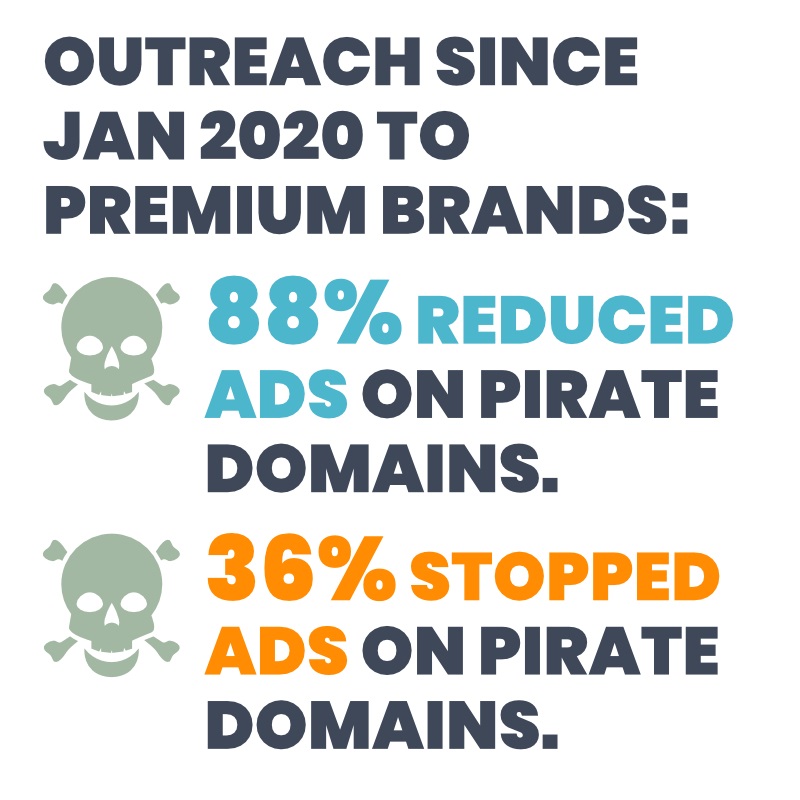Follow the money – an immortal piece of wisdom that never lets you down
- Thursday, October 22nd, 2020
- Share this article:
Peter Szyszko, Founder and CEO of White Bullet, looks at the issue of pirate online content and the big, well-known brands that help fund it.
 No matter how many times you hear it, ‘follow the money’ remains a remarkably wise line. It has its popular roots in the Watergate scandal, or at least in All The President’s Men, the 1976 film on the subject, but it gets to something universal: the fact that where there’s something dodgy going on, someone somewhere is making money out of it. Figure out where the cash is going and you’ll find the villain who’s making it all happen.
No matter how many times you hear it, ‘follow the money’ remains a remarkably wise line. It has its popular roots in the Watergate scandal, or at least in All The President’s Men, the 1976 film on the subject, but it gets to something universal: the fact that where there’s something dodgy going on, someone somewhere is making money out of it. Figure out where the cash is going and you’ll find the villain who’s making it all happen.
So it is with pirate online content, which is easily found on the web, in the mobile ecosystem, even across newer frontiers such as connected and OTT TV. The audience for pirate sport, films and TV is bigger, it has recently been said, than the audience of Netflix. And no-one puts this material out there just to set it free; they do it to make money – most of it from advertising, most of that advertising from household-name brands.
Criminal enterprise
Do these brands know they are supporting a global criminal enterprise? Not necessarily. Between January and August this year, we reached out to the 50 premium brands whose advertising we had observed most often on pirate sites, informing them of their exposure and advising them there were measures they could take to reduce or eradicate that exposure entirely.
 We carried out pre- and post-outreach analysis and here’s what we found: after our approach, 36 per cent of those premium brands stopped advertising on pirate sites entirely; 88 per cent reduced their advertising on pirate websites significantly.
We carried out pre- and post-outreach analysis and here’s what we found: after our approach, 36 per cent of those premium brands stopped advertising on pirate sites entirely; 88 per cent reduced their advertising on pirate websites significantly.
These are the kind of figures that vindicate the approach of our own Follow The Money programme. It is one that involves drilling down into the murk of the pirate content industry, using our always-on, industry-leading data tracking technology, and identifying and quantifying the intermediaries, companies, systems and support structures that are supporting piracy.
By following the money and reaching out to those along the chain, the idea is that we can demonetise this nasty business, which preys equally on IP owners, brands and, not insignificantly, on consumers, via an unpleasant sideline in fraud and malware.
The ‘follow the money’ strategy is one that has been adopted with success by governments worldwide to tackle digital intellectual property infringement. We ourselves work with the European Commission, the UK’s Intellectual Property Office and the TAG, as well as numerous brands and IP owners.
Piracy-free ad chain
Most brands are attracted to the idea of a piracy-free ad chain, with no ads on unpleasant, risky or otherwise illegal domains. Most of them recognise the danger of a tainted ad chain to their own business and correctly conclude that propping up criminal enterprises is an unappealing and avoidable side effect of their digital advertising.
This is heartening, and more heartening still is the fact that, given the appropriate guidance and technology, these numbers show how brands can promptly turn a bad situation around. We’d be glad to show anyone how to do it.
Half a dozen brands continued to advertise on pirate sites in the wake of our outreach; in fact, those few brands actually increased their advertising on pirate domains during the period, which is part of the reason that overall, the total decline in ad impressions on pirate websites from these 50 brands was a sizeable but still improvable 29 per cent.
The mentality of brands that are happy to spray their advertising across any surface is interesting. Clearly, these brands see the users of pirate sites as legitimate eyeballs. We’re not in the business of naming and shaming, but this list of unapologetic pirate advertisers includes extremely well-known tech brands – two of them, ironically, heavily involved in legitimate streaming content – as well as others in travel, online gaming and an online casino.
Certainly, it’s true that these nefarious streaming websites and apps aren’t patronised by some criminal class – these can be affluent consumers in search of free, real-time content. In that sense, they perhaps do represent a targetable audience. But that isn’t really the point, is it?
















